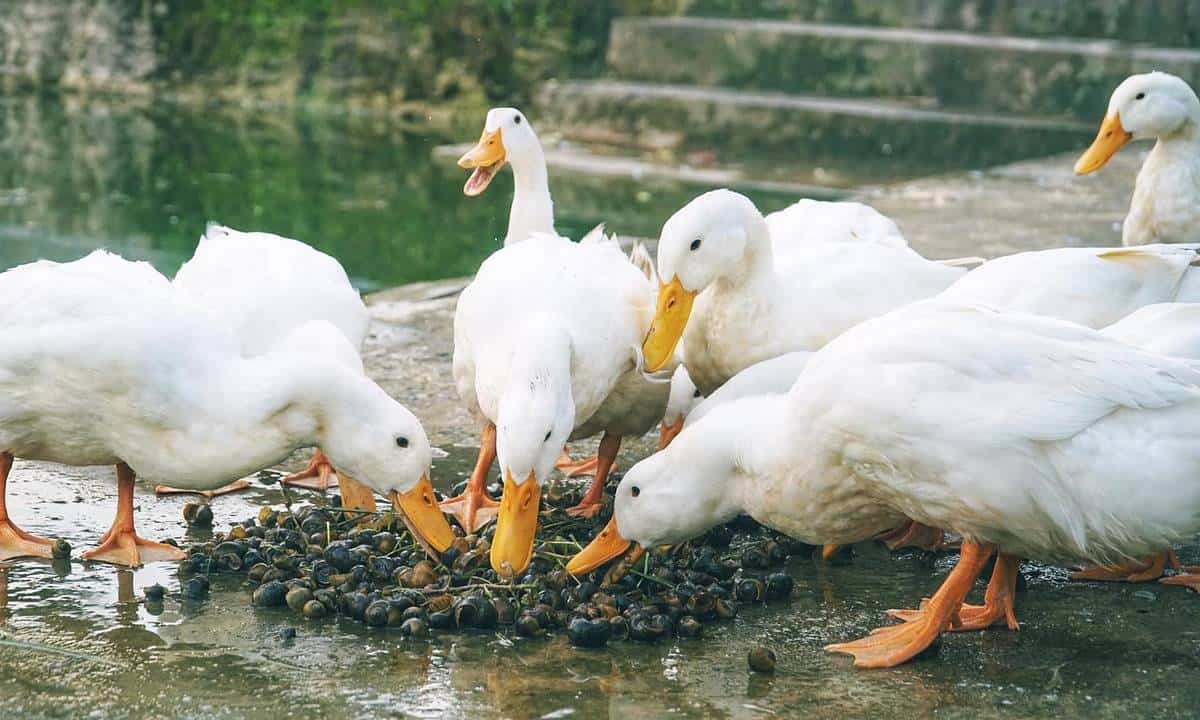Ducks as Pets: Guidelines and General Tips. Ducks are waterfowl that belong to the family Anatidae, which also includes geese and swans.
Though different species of ducks have varied characteristics, they generally have similar needs. These needs make ducks perfectly compatible as pets, although they require certain minimum conditions in their living space, as you will see later on. At first, it might seem strange to think of ducks as pets, but
What are ducks as pets like?
If we need to point out one aspect from the nature of ducks, it is their sociability. Ducks are very sociable animals, so its important to mention that it wouldn’t be a good idea to keep a single duck as a pet because they need the company of their own species.
Therefore, if you’re mulling over the possibility of keeping a duck, you should know that it’s much better to adopt a pair.
While the ducks engage in their own social activities, does the sociability between ducks mean that we humans will be left as outsiders? If you keep several ducks in your home,”

You might be surprised to hear that ducks are capable of performing simple tricks, and they can impress you by bringing the toy that you were playing with in your free time back to you.
How much space do ducks need?
Before making the commitment to bring an animal into your home, you need to carefully consider if you can provide everything they need to live a happy life. This includes but is not limited to: food, water, shelter, and medical care.
It is also important to note that ducks have a lifespan of around 13-15 years, so this is not a short-term commitment. If your home does not have access to an outdoor area for the duck(s) to roam, then you will not be able to keep them as pets. Ducks need the following in order to thrive in captivity:
Ducks need space to walk and play, and a chicken coop or hutch of appropriate dimensions so they can take refuge in bad weather. This space is especially important if the ducks share their home with other pets or are at risk of being attacked by predators.
Ducks enjoy water, so having access to it is essential. This means you need an artificial pond in your garden, or something that can simulate one – and as wide as possible.
What to feed a pet duck
If you’re thinking of getting a pet duck, you should be aware that they require a good deal of food each day. A healthy diet for a pet duck can include a variety of things, such as vegetables, seeds, grain, insects, and even some fish.
However, it’s important to note that the commercial feeds made specifically for ducks are generally high-calorie and meant for farm animals. So, if you choose to go that route, you’ll want to give your pet duck smaller portions.
In terms of access to food and water, pet ducks should have both available to them at all times during the day. Place their water bowl in an area that won’t be too difficult for them to get to and make sure it’s deep enough for them to drink and bathe comfortably.

When you get a new pet, be sure to ask your vet what kind of food they recommend for your new pet. This might vary slightly depending on the breed of your pet, but it will typically be based on the same main ingredients.
Ducks need clean environments
The easiest way to keep your pet duck healthy and Hygienic is to provide it with a clean and comfortable environment. This can be done by following these simple steps:
- sand should be used to line the floor of the duck’s hutch to make cleaning up easy.
- the pond water should be kept clean by regularly changing it and keeping an eye on the levels of bacteria.
- food that the ducks don’t eat during the day should be removed at night to stop them from eating contaminated or bad food.
Veterinary care for pet ducks
If you want to keep a duck as a pet, you’ll need to take some special care to ensure their health and well-being. This includes both hygiene and diet. Additionally, it’s important to know the most common symptoms of disease so you can catch it early and get your duck the help they need.
If you notice your pet duck exhibiting any of the following symptoms, it is important to seek professional medical help as soon as possible, as these could indicate a serious illness:

- -Nasal inflammation, redness, or nasal secretions
- -Abnormal depositions of very hard or very soft consistency, or which show a yellowish, reddish, or black color
- -Difficulty in breathing
- -Bristled, opaque, or dirty-looking feathers
- -Redness or eye discharge
- -Loss of appetite
- -Changes in their normal behavior
When the duck comes home
When you first bring a duckling into your home, it’s important to keep it in a warm and dry place. This is usually a cardboard box lined with straw. For the first 4-5 weeks, the duckling shouldn’t be allowed near water as its feathers aren’t developed enough yet.
At around 2 months old, the duckling can start going outside when the weather is good. Gradually, it will begin to adapt to life outside the home.
See Also Ducks as Pets: Guidelines and General Tips

